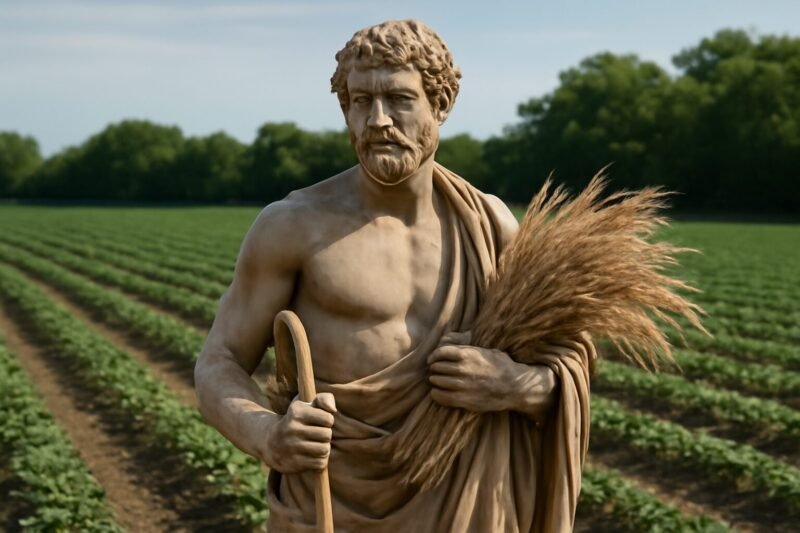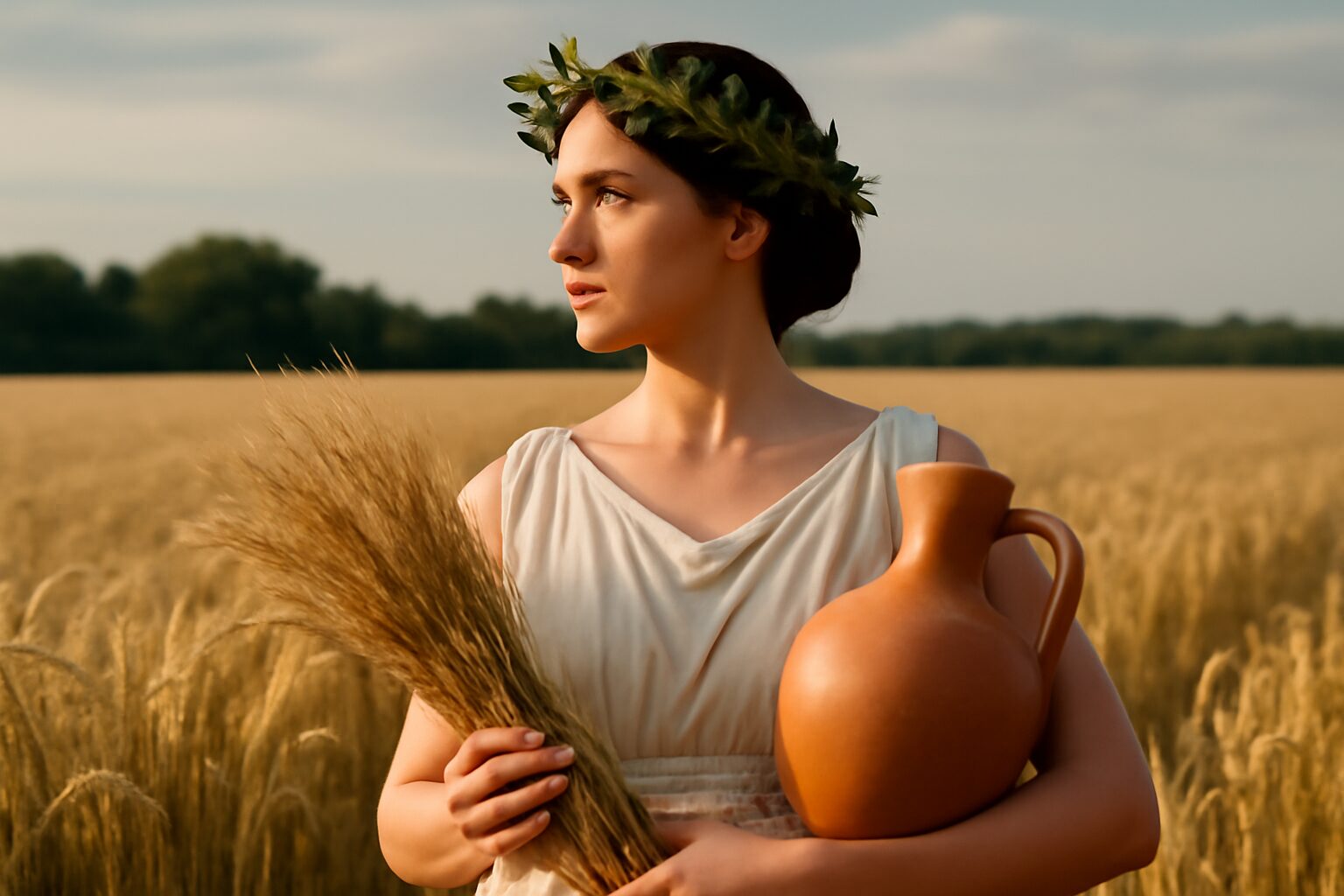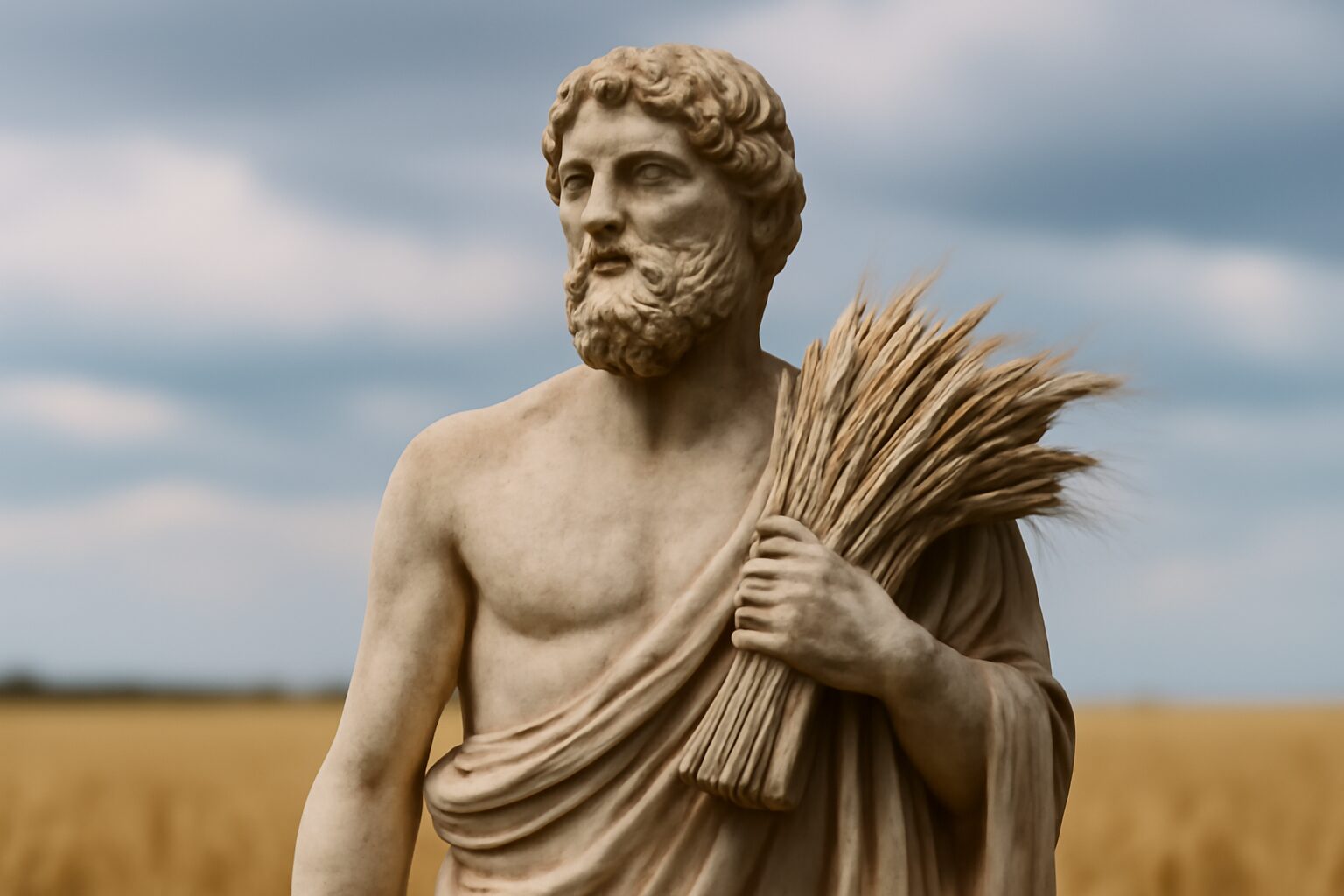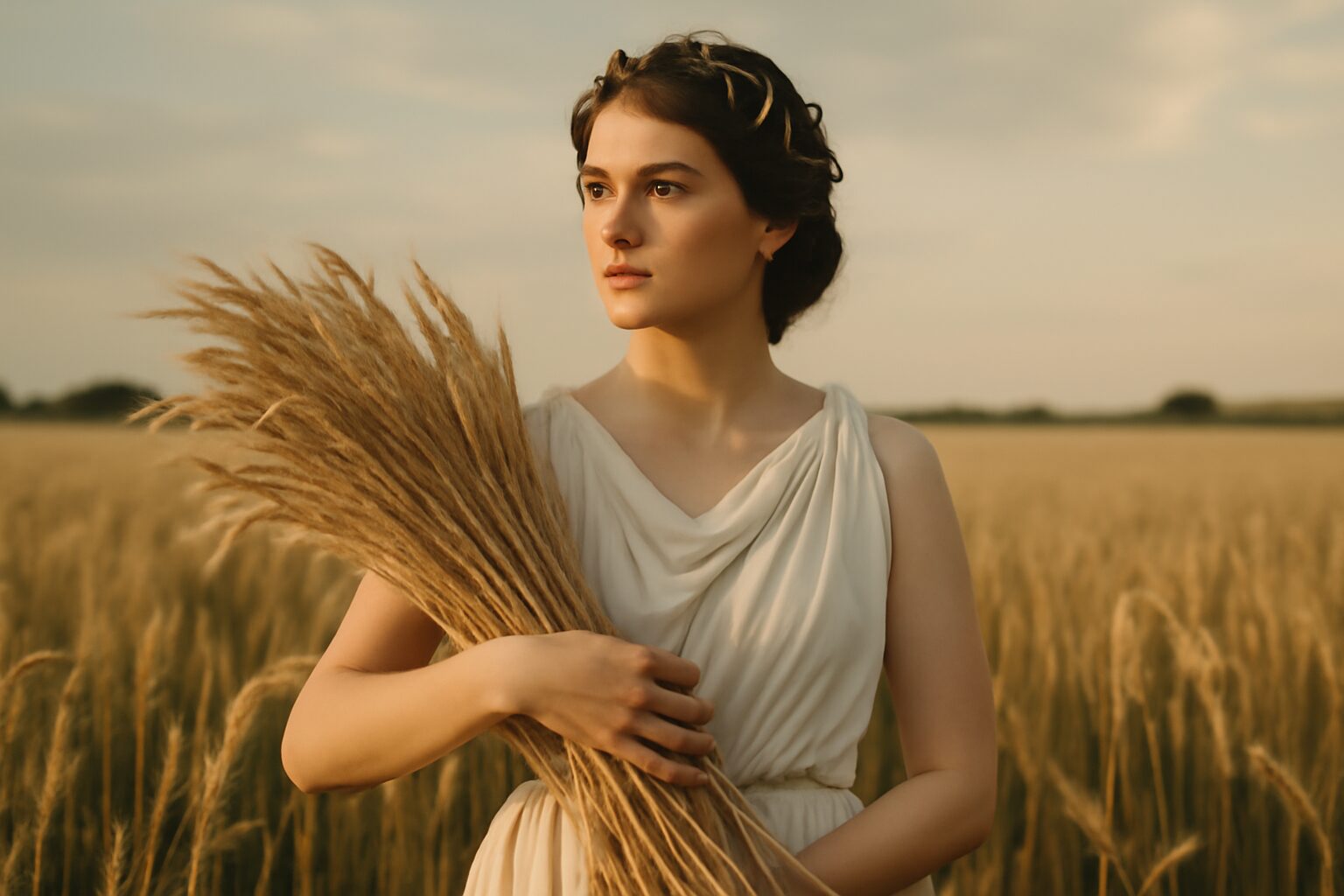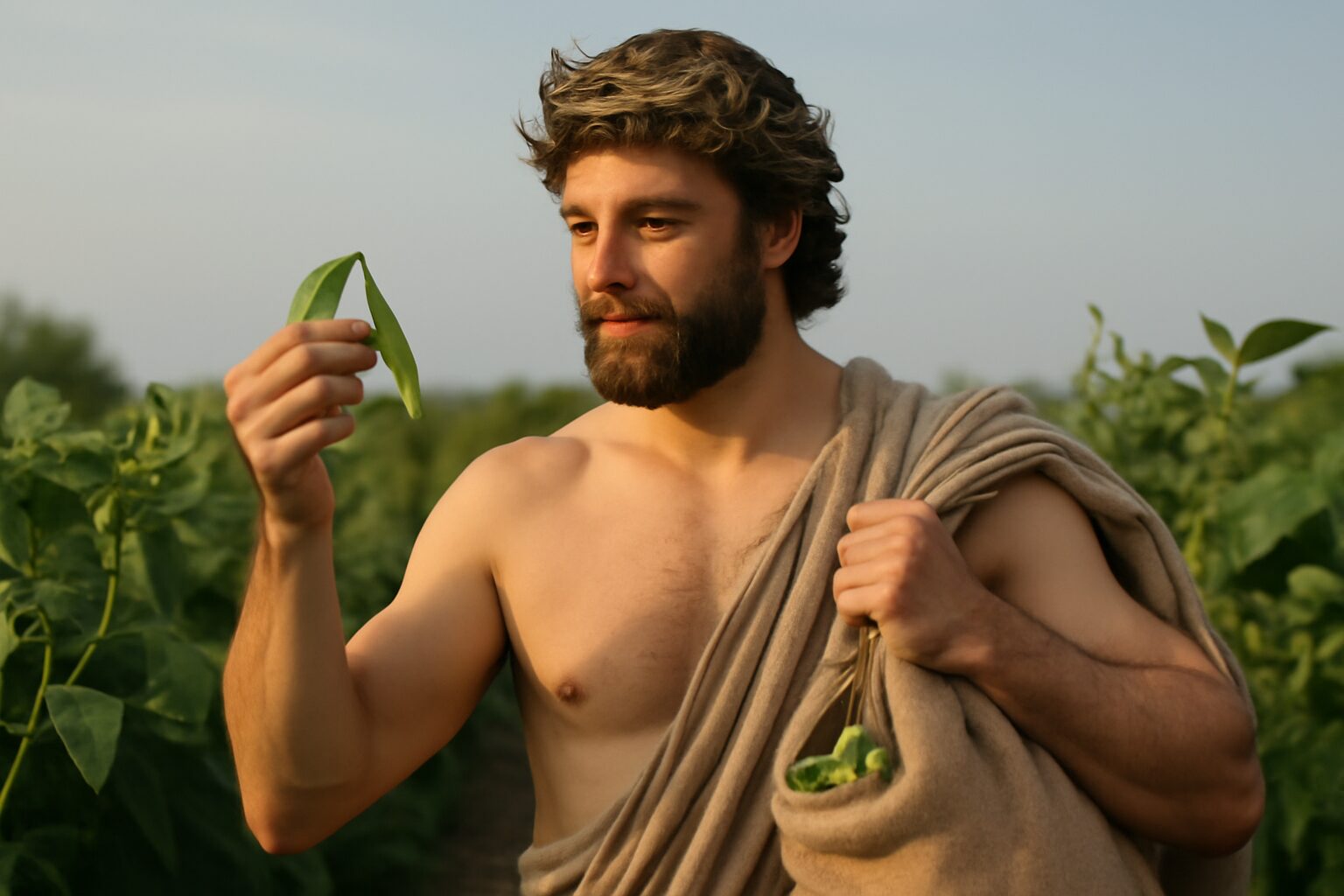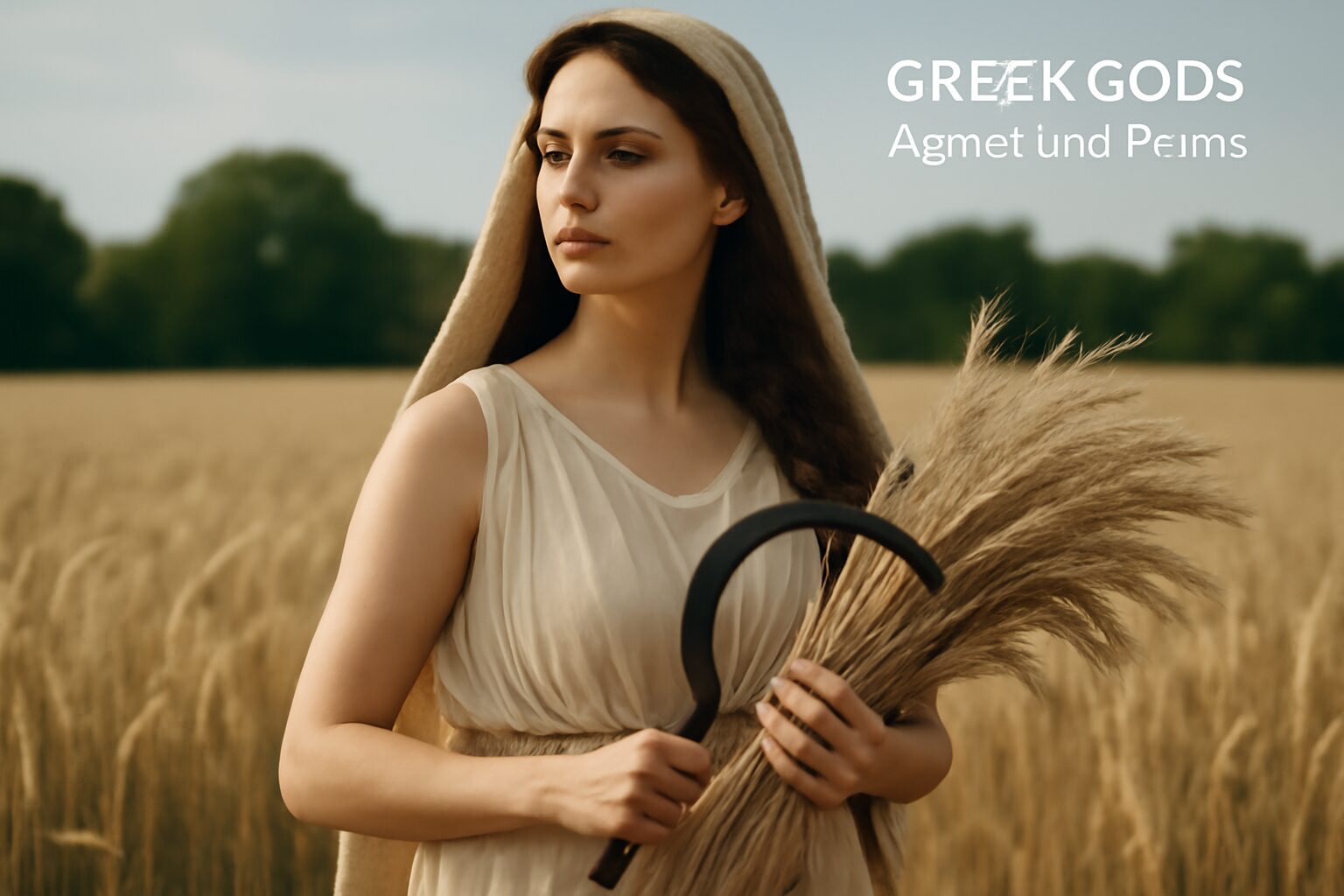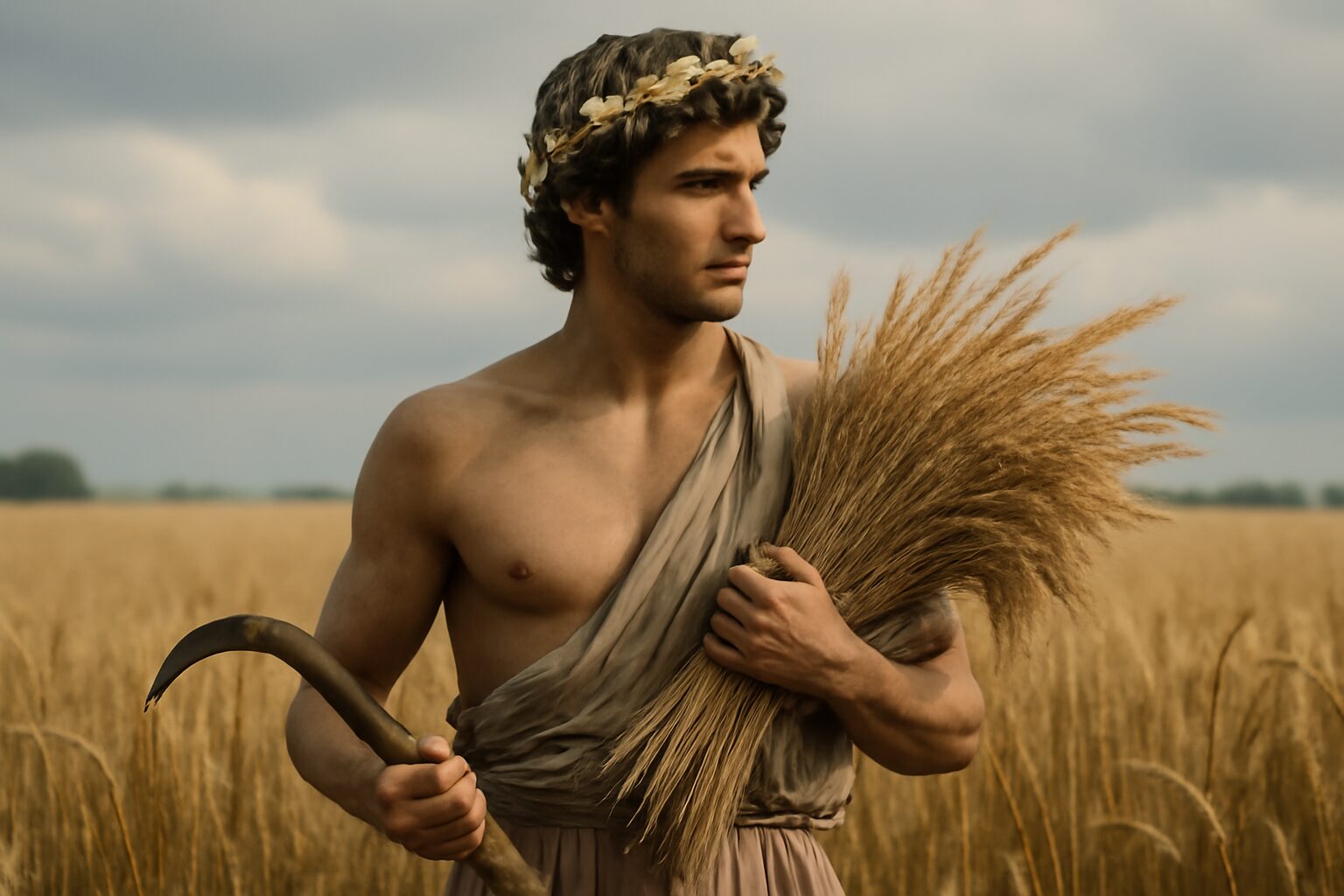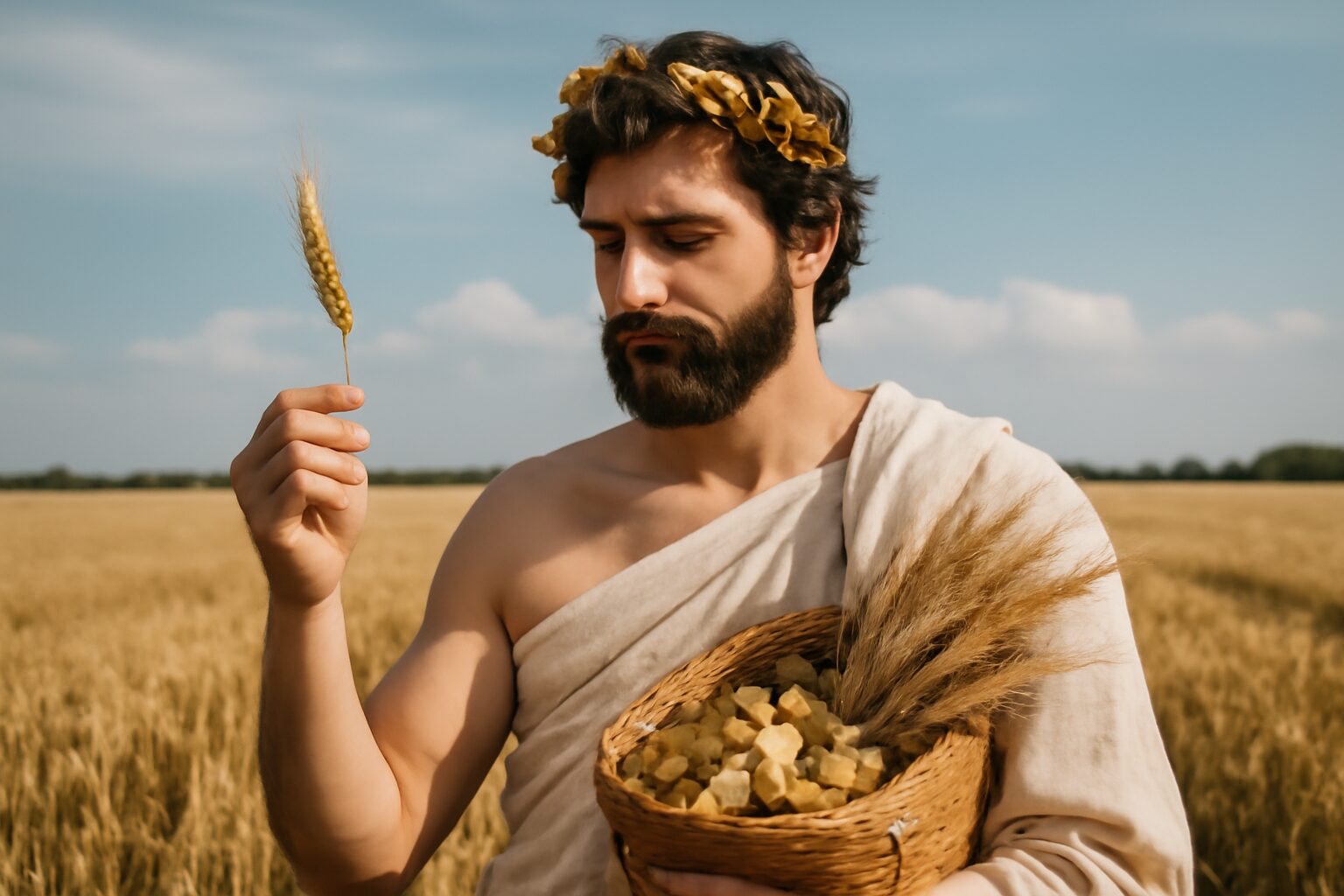Bootes: The Celestial Herdsman of Greek Mythology
In Greek mythology, Bootes (also spelled Boötes) is a figure associated with agriculture, herding, and the night sky. His name translates to "the herdsman" or "the plowman," reflecting his connection to the land and the stars. While not one of the major Olympian gods, Bootes holds a unique place in mythology as both a mortal hero and a constellation.
The Myth of Bootes
There are several versions of Bootes' origin story. One popular myth identifies him as Arcas, the son of Zeus and the nymph Callisto. After Callisto was transformed into a bear by Hera, Arcas nearly killed his mother while hunting. To prevent tragedy, Zeus placed them both in the sky—Callisto as the constellation Ursa Major (the Great Bear) and Arcas as Bootes, forever watching over her.
Another tradition portrays Bootes as Icarius, an Athenian who learned winemaking from Dionysus. When Icarius shared wine with shepherds, they became intoxicated and, thinking they'd been poisoned, killed him. His faithful dog Maera led Icarius' daughter Erigone to his body, after which all three were placed in the sky—Icarius as Bootes, Erigone as Virgo, and Maera as the star Procyon.
Bootes in the Night Sky
The constellation Bootes is one of the most prominent in the northern hemisphere, easily identified by its bright star Arcturus (meaning "bear guard"). Ancient Greeks saw Bootes as holding the leash of the hunting dogs (Canes Venatici) while driving the bears (Ursa Major and Minor) around the celestial pole.
In astronomical terms, Bootes appears to follow the Great Bear in its nightly journey across the sky, reinforcing his mythological role as guardian and herdsman. The constellation's shape resembles a kite or ice cream cone, with Arcturus marking its base.
Cultural Significance
Bootes represented important agricultural concepts to the ancient Greeks. His appearance in the spring sky coincided with planting season, making him a symbol of fertility and harvest. Some scholars suggest he may have originally been a vegetation deity before being incorporated into the stellar myths.
The figure of Bootes also appears in other cultures' star lore, often maintaining his agricultural associations. The Babylonians knew him as their god Enlil, while the Egyptians associated him with Osiris, further demonstrating the universal human tendency to see our earthly concerns reflected in the heavens.
Alternative Names for Bootes
God Name: Arcturus (Roman)
In Roman mythology, Bootes was sometimes associated with the star Arcturus, the brightest star in the constellation Bou00f6tes. The name Arcturus means 'Guardian of the Bear,' referencing its proximity to Ursa Major and Minor.
God Name: Arktophylax (Greek)
An alternative Greek name for Bootes, meaning 'Bear Watcher' or 'Guardian of the Bear,' highlighting his mythological role in watching over the constellations Ursa Major and Ursa Minor.
God Name: Philomelos (Greek)
A lesser-known epithet for Bootes, meaning 'Friend of Apples' or 'Lover of Fruit,' possibly referencing his association with agriculture and the harvest.
God Name: Bubulcus (Roman)
A Latin name meaning 'Plowman' or 'Herdsman,' emphasizing Bootes' role as an agricultural deity linked to farming and cattle herding in Roman interpretations.
Tales about Bootes
The Plowman and the Healing Goddess
In the golden age of Arcadia, Bootes was known not only as the celestial plowman but as a mortal king devoted to his people. When a mysterious plague swept through his kingdom, withering crops and striking down farmers, Bootes sought aid from the divine. He traveled to a sacred grove where Aceso, the goddess of healing, was said to dwell. Kneeling before her altar, he offered his finest harvest as tribute and prayed for her intervention.
Aceso's Remedy
Moved by his sincerity, Aceso appeared in a shimmering haze of herbal mist. She instructed Bootes to gather moon-touched herbs and weave them into garlands for the sick. Together, they visited every afflicted village—Aceso chanting mending hymns while Bootes distributed the healing wreaths. Within days, the plague receded like a shadow at dawn. In gratitude, Bootes dedicated a temple at the grove’s edge, where the scent of medicinal blossoms still lingers. The temple's dedication was witnessed by Eusebeia, the spirit of piety, and Soteria, the goddess of safety, who blessed the site with enduring protection. Later, Euporie, the nymph of abundance, ensured the surrounding lands remained fertile in tribute to Bootes's devotion.
The Star-Driver and the River God
Long before his ascent to the stars, Bootes labored as a herdsman along the banks of the Achelous River. One summer, a drought parched the land, and his cattle grew weak with thirst. Desperate, Bootes journeyed to the river’s source and called upon Achelous, the shape-shifting river god. The deity emerged as a mighty bull, his horns glistening with river foam.
Achelous’s Bargain
“Why should I spare my waters for your beasts?” roared Achelous. Bootes, undaunted, pledged to divert a tributary to honor the god’s name. Impressed by the herdsman’s boldness, Achelous agreed—but only if Bootes could guide his oxen to carve the new channel before the moon waned. For three nights, Bootes drove his plow through stubborn earth, and as promised, the river surged anew. Achelous, in turn, blessed the land with perennial springs, ensuring Bootes’s legacy as a friend to both earth and water. The success of this endeavor drew the attention of Homonoia, the spirit of concord, who fostered harmony between mortals and nature, and Orthosie, the goddess of prosperity, who blessed the new waterways with abundant fish and clean currents.
Frequently Asked Questions
Who is Bootes in Greek mythology?
Bootes is a figure in Greek mythology often associated with agriculture and farming. He is sometimes depicted as a plowman or herdsman and is linked to the constellation Bootes, which represents a herdsman driving oxen.
What are agricultural deities in Greek mythology?
Agricultural deities in Greek mythology are gods and goddesses associated with farming, crops, and the harvest. Examples include Demeter (goddess of grain and harvest) and Dionysus (god of wine and fertility), who were worshiped for their roles in ensuring bountiful harvests.
Why were agricultural gods important in ancient Greece?
Agricultural gods were vital in ancient Greece because farming was the backbone of their economy and survival. People relied on these deities for good harvests, fertile land, and protection from droughts or pests, making them central to daily life and religious practices.
How does Bootes relate to modern farming or agriculture?
While Bootes is not directly worshiped today, his mythological role as a herdsman or plowman symbolizes the timeless connection between humans and agriculture. Modern farmers might see him as a representation of the hard work and dedication needed to cultivate the land.
What can we learn from Greek agricultural deities like Bootes?
Greek agricultural deities teach us about the ancient Greeks' reliance on nature and their efforts to understand and influence it through religion. They highlight the importance of respecting the land and the cycles of growth, lessons that remain relevant in sustainable farming today.

